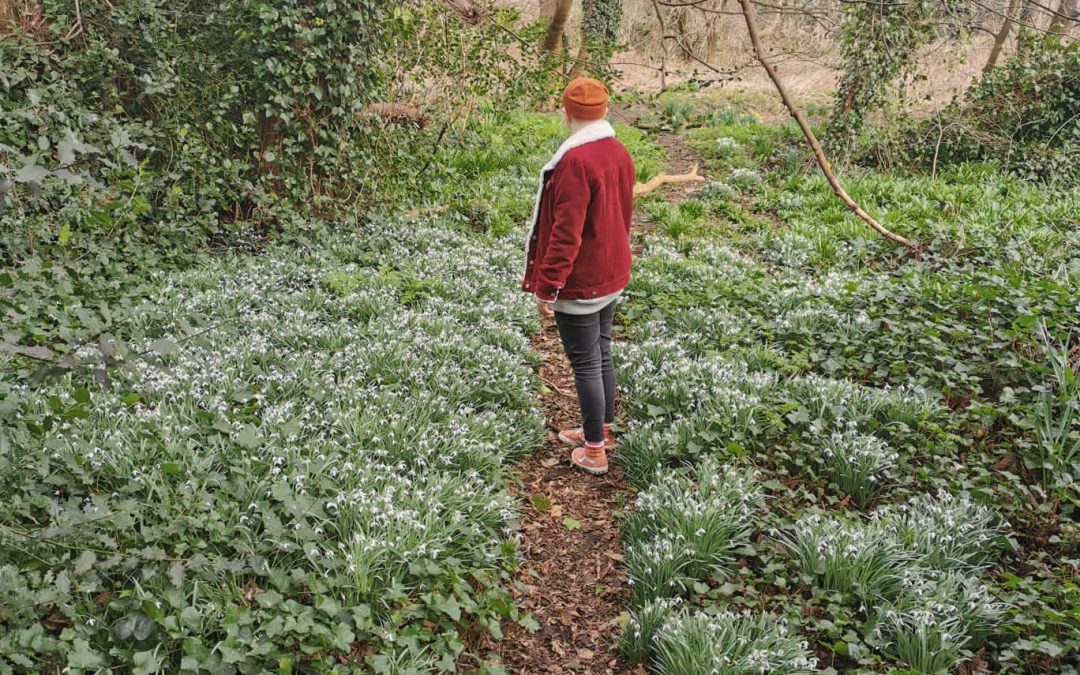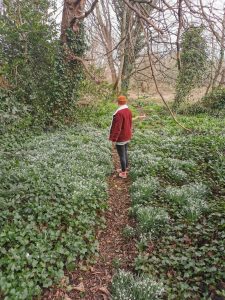‘This is Me’ is a new VOX (Voices of Experience) blog series highlighting individual lived experiences of mental health problems. In this series, VOX members across Scotland share their stories and reflect on what must change to ensure positive mental health for all.
This series will explore a range of themes including barriers to accessing mental health services, isolation and loneliness, and the intersection of poverty and mental health. Please note some experiences shared may cause distress.
In this blog, ‘Nico’ reflects on the best ways to create safe spaces, the importance of creativity, and building a more inclusive society.
What works and what doesn’t when creating safe spaces?
As a queer person, it is important for myself and others for spaces to be gender diverse enough to feel comfortable. At times it can be intimidating and anxiety-inducing entering spaces (either in-person or online) and questioning if you will be accepted. There is a universal need for spaces to be as inclusive as possible. Introducing yourself by using pronouns when in a collaborative setting can help create an inclusive environment and normalise gender diversity.
What other language considerations or actions should be taken when creating safe spaces?
When looking at diversity and accessibility for those who are hard of hearing and/or use British Sign Language (BSL), having an interpreter available or using online support options such subtitling can ensure spaces are more inclusive. For individuals with social anxiety, autism, and/or ADHD, having a separate room available to access can be supportive should they feel overwhelmed during a meeting.
What matters to you in your life?
Having access to communities and having resources available to learn either in person or online. I find that ‘in person’ socialising is important for me as, when I am online, I can still feel alone. If I get to go outside and out of the house, I have exercise and fresh air and feel part of the local community. When you step outside, you are being part of the world
I am a creative person, and this comes out in many different ways. When we think about creativity we tend to only think about art, but art comes in many different forms and so too does creativity: for example, doodling and organising things are both examples of being creative. Being creative is important: I place so much value in my writing that when I’m not doing it, I’m not being myself. My creativity can be channelled through cooking, plants, or doing things around the house.
Adding things to the house and seeing the result makes me feel good. Home is really important to me as I’ve not had a safe space I could call home for many years, and this is the first time I can call it home. I put a lot into my house – it is a reflection and extension of myself. My house is Me!
Writing is very intertwined with my wellbeing, and when I’m not writing and have a block it affects me. When I write I feel connected to myself, and I feel grounded. My writing takes many styles: my essays are reflective, but I mostly write poetry as I find it helps me to connect and be mindful. My storytelling themes tends to be about creatures. Overall, it is about overcoming something and coming into yourself, told through these creatures who have a hideous exterior and are outcasts. It is about love and being misunderstood. It is about perceptions, and they are not what they seem. When I write my own experiences, I might look a certain way or appear a certain way but that doesn’t reflect what’s underneath.
What matters to you in your mental health?
I think my mental health is generally okay these days, but it is important to have consistency and I need to be seen and heard. If my feelings or experiences are dismissed or misunderstood, it will be difficult for me. So much broken trust has been in my life and in accessing services. I am articulate, but I do struggle and there will be times I will not be okay. There is this assumption when you go and ask about support that you have support from family, but I have had to survive independently, estranged from family. There is nowhere for me to go if I slip. I am a strong person, but it is down to me, and I don’t have anyone to lean on. I have learned to manage on my own, and have had some help, but I don’t want to put a lot of myself into something that is short term support as, living with complex trauma, it takes so much time to build trust.
What would you like to see change in the world of mental health?
- Holistic, long-term support – what would that look like? Psychological therapy and support, counselling and specialised therapies that are specialised in mental health illness and specialised in complex trauma and abuse.
- Address the issue of waiting lists – too much demand, not enough service.
- More peer support groups – they can be a bridge between psychological therapies and community.
- A variety of different things e.g., Art therapy, Bodywork therapy, have a more human side to it. Certain therapies are not available because a certain criteria is needed. With Bodywork therapy, I don’t think I qualify for it – I am missing out on things that I know would be good for me.
What are your hopes and aspirations for the future?
I don’t think ahead… I suppose I do have things I want to achieve but I don’t plan, and I only try to live in the here and now. In a general sense I would like to be more involved in the community and I am getting there!
I think because I have gone through so much in the past 8 years, particularly there has been certain times in my journey where I have looked at what I have done, I can see the difference of how I feel and where I am now. Especially over past 1 ½ years I can see the difference in where I am, what I need, and how I get there. For the future, there will also be creativity, new ideas, and more thinking about connections with people.
My goal and what I would like to do would be community development work. I think my skills are best suited to this – I can listen, liaise, and organise and this new role would offer more connections and more opportunities. Firstly, I would dip my toe into this by volunteering to test it out and gain experience.
What do you want to say to have your voice heard?
I have something I want to do and be able to put “it” somewhere. I would like to have support to do it (e.g., Title of gender neutral: “Mx” is used as a title for those who do not identify as being of a particular gender or for people who simply don’t want to be identified by gender). I’d like it to be in places that haven’t already got the prefix options and to the have the option of “no title.” I am trying to change that, with one voice. What if I want to or need to change this to be more inclusive for people? Is there somewhere I can go e.g., go to local council surgery and speak to my MP? Another thing is: Places ask for an emergency contact, what if you don’t have one? I feel this is a gap.
What do you want to shout out loud?
Have compassion, have kindness, and have understanding. Understand that people are different. We are all human; we all experience similar and different things – we should all respect that!


